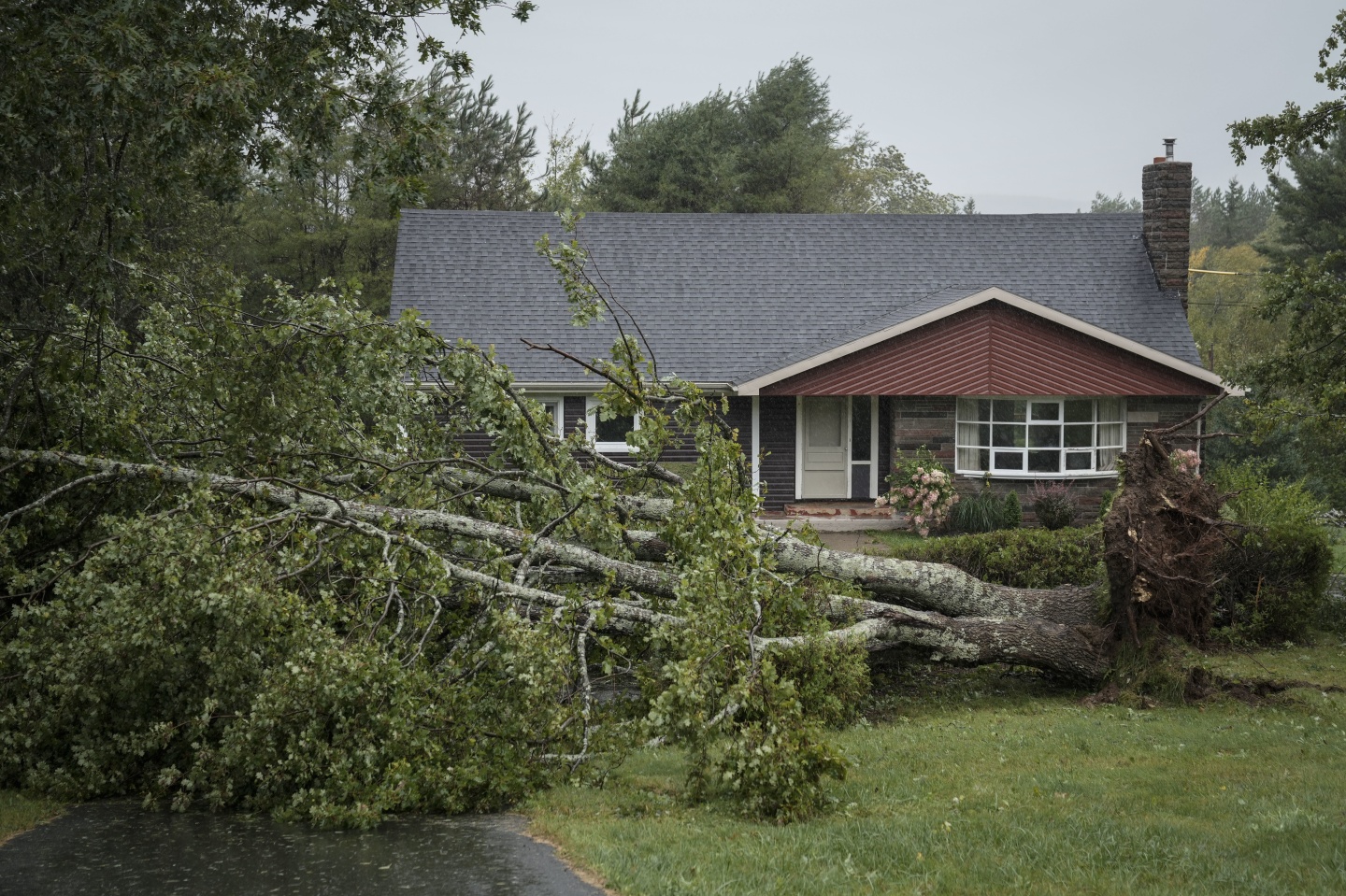Five Canadian provinces along the Atlantic Ocean are marshaling their recovery efforts one day after Post-Tropical Storm Fiona devastated the region.
Officials were asking residents to stay off the roads – some of which were blocked by downed trees and debris – as crews attempted to restore power to those still in the dark following Saturday's storm, which had been downgraded from a hurricane.
More than 250,000 electric customers in the hard-hit province of Nova Scotia still had no power as of Sunday morning.
Nova Scotia Power president and CEO Peter Gregg said it would take several days for the 900 technicians in the field to restore power to some customers due to the extent of the damage.
"We've seen healthy trees uprooted. We've got hundreds of broken poles that we've been able to identify so far, and we're expecting to find more as we continue to complete our damage assessment," Gregg said during a briefing by public officials Saturday afternoon.
Nova Scotia Premier Tim Houston said in a video message that the storm inflicted a "breathtaking" amount of damage across the province.
"Fiona certainly left her mark on Nova Scotia," Houston said. "Stay safe. Stay patient. We will get through this for sure."
The federal government was mobilizing the Canadian Armed Forces to help with recovery efforts in the province, Minister of National Defence Anita Anand said in a tweet.
On Prince Edward Island, where nearly all households lost electricity at one point, officials warned that recovering from Fiona would take time.
"It will take weeks, for sure," Brad MacConnell, chief of police of Charlottetown, told NPR's Weekend Edition Sunday.
"It's a historic storm here in PEI, a level of devastation we haven't seen before," he said.
Port aux Basques, a town in Newfoundland, was under a state of emergency on Saturday due to "multiple electrical fires, residential flooding and washouts," the Royal Canadian Mounted Police said. Fiona pummeled the town with a storm surge that was roughly three feet high.
New Brunswick also saw flooding, widespread power outages and a bridge destroyed, the CBC reported.
According to Environment Canada, Fiona made landfall as a hurricane-strength post-tropical cyclone and had what's been estimated to be the lowest recorded barometric pressure of any storm in Canada's history. As a general rule, the lower the barometric pressure, the higher the chance of unsettled weather.
This part of Canada does occasionally experience the remnants of hurricanes, but Fiona was particularly strong, reporter Emma Jacobs told NPR.
"In this case, very warm conditions in the Atlantic Ocean allowed this storm to move north with a lot more force. It's broken a lot of records for recorded wind speeds across this region," Jacobs said.
9(MDAxODcyMTgzMDEyMTgxMTY5NjYxN2I4OQ004))
300x250 Ad
300x250 Ad



